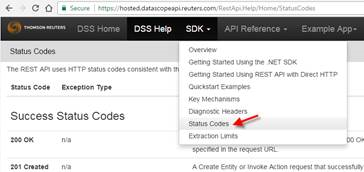When the RIC is wrong I get a 200 status code and I have inspect/parse the notes trying to understand if there was an error. Is there a better way to find if there was an error ? For example, when the start date is after the end date I get a 4xx http status code. How do I understand that there was an error ?
Extraction Services Version 11.0.36705 (cbb5015f7377), Built May 2 2017 18:05:54
User ID: 9012332
Extraction ID: 2000000000470676
Schedule: 0x05bb4169ad8b3016 (ID = 0x0000000000000000)
Input List (1 items): (ID = 0x05bb4169ad8b3016) Created: 25/05/2017 15:30:11 Last Modified: 25/05/2017 15:30:11
Report Template (24 fields): _OnD_0x05bb4169ad8b3016 (ID = 0x05bb4169bf1b3016) Created: 25/05/2017 15:30:04 Last Modified: 25/05/2017 15:30:04
Schedule dispatched via message queue (0x05bb4169ad8b3016)
Schedule Time: 25/05/2017 15:30:05
Processing started at 25/05/2017 15:30:05
Processing completed successfully at 25/05/2017 15:30:11
Extraction finished at 25/05/2017 14:30:11 UTC, with servers: x04q13
Instrument <RIC,ESM9^9> expanded to 0 RICS.
Report suppressed because there are no instruments





